Surrounding yourself with ‘yes men’ – that’s people who always agree with your decisions just to maintain harmony and gain leadership approval – is a recipe for leadership failure.
When these individuals support your vision without question and only tell you what you want to hear, they don’t strengthen your leadership, they quietly undermine it.
That’s why cultivating a culture of dissent is so important.
Far from being repressed, thoughtful and respectful dissent should actually be encouraged. Essential for ensuring effective leadership, this pushback supports crucial evaluation, often resulting in better decisions, stronger teams, and greater trust.
A prominent leadership coach with significant experience working with elite athletes, educators, and businesses, Drew Povey outlines the dangers of ‘yes men’ and how cultivating a culture of dissent can help.
Combat team-killing echo chambers
When every member of a team feels pressured to agree, the team stops being able to think critically and all authenticity is lost. That’s the danger of an echo chamber: it only creates the illusion of alignment.
Some of the best leaders understand that dissent isn’t about disruption. It’s about data.
Data, in the form of valuable feedback, fresh perspectives, and new insights, helps the team to make more informed decisions. Without it, the decision-making process becomes dysfunctional – bad ideas go unchallenged, blind spots multiply, and risks are overlooked.
Over time, this doesn’t just impact outcomes, it also impacts the whole team by wearing away trust, stalling innovation, and stifling performance.
For a healthier, more productive team, leaders must create space for constructive disagreement by cultivating a safe and trusting environment.
Consider the creeping cost of hearing ‘yes’
Every ‘yes’ you hear as a leader may feel like progress, but when a team stops questioning and starts agreeing automatically, you’re no longer making smart, informed decisions. Instead, you’re just coasting on consensus.
That’s because too many yeses create blind spots. They silence the quiet concerns, skip over second thoughts, and smooth out the friction that often leads to better thinking.
And the cost? It’s rarely immediate, but always significant. Mistakes grow over time and accountability slips. Eventually, these problems can develop into more complex issues and completely trip up projects or entire businesses.
Healthy leadership doesn’t come from surrounding yourself with agreement. It comes from clarity. And clarity can be found in encouraging healthy challenge that sharpens thinking, strengthens decisions, and prevents costly missteps.
Foster the strength of true diversity
Real diversity is not just about backgrounds, it’s about perspectives. Beyond the demographics, diversity should ensure that different voices are genuinely heard, valued, and challenged in a productive way.
When teams embrace different ways of thinking, they make better decisions. That’s because disagreement, when done well, is how we stress-test ideas, uncover blind spots, and pressure-check assumptions before they become costly mistakes.
This is backed by a Cloverpop study white paper which found that diverse teams (in age, gender, ethnicity, and geographical location – and by extension, perspective) make better business decisions a whopping 87% of the time.
Ultimately, if everyone sees the world the same way, or feels they must pretend they do, then you’re not leveraging the true strength of diversity.
Conduct the leadership truth test
The most effective leaders don’t simply ask for feedback, they actively seek brutal truths – something that they’ll never get from ‘yes men’.
To uncover what’s really going on, leaders must cultivate a culture of psychological safety – where people feel safe enough to speak up, push back, admit accountability, and say what they genuinely think without fear.
Whether challenging ideas, raising concerns, or simply being honest, good leaders want to hear those hard truths. Not because they enjoy discomfort, but because they understand that clarity is more important than ego.
As McKinsey & Company’s survey highlights, when employees feel secure enough to openly share suggestions and question the status quo, organisations become more innovative, adaptive, and resilient.
Once leaders know what’s actually happening (instead of what they hope is happening!), they can respond with clarity and confidence – even if it’s uncomfortable or hard.
Use dissent as a leadership mirror
Dissent is one of the clearest reflections of a leader’s confidence. Insecure leaders tend to silence it, while the most secure leaders actively seek it out.
When dissent is offered respectfully and openly welcomed, it indicates that the team leader has built a trustworthy and psychologically safe environment. It also shows that they’re confident enough to be challenged, humble enough to listen, and wise enough to know they don’t have all the answers.
Instead of seeing dissent as a threat to their authority, strong leaders see it as a mirror for self-awareness and growth.
As a result, if no one is pushing back, questioning assumptions, or offering different perspectives, don’t assume alignment – consider whether your team feels safe enough to disagree.
Because if and how your team disagrees with you speaks volumes about your leadership style and efficacy.



